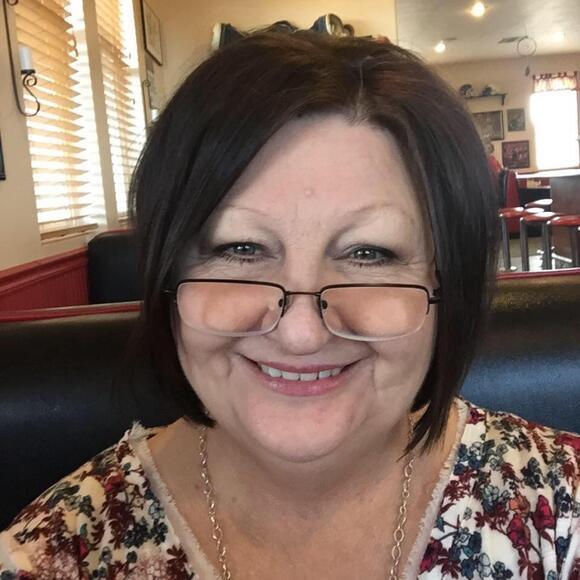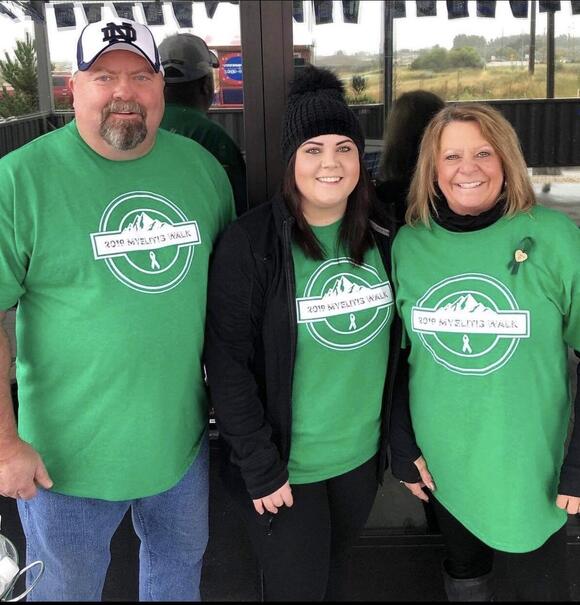Living With an Autoimmune Disease: Real Life Stories
People living with an autoimmune disease often feel ignored or like a bother to those around us because we don’t look sick. Truthfully, these people’s invisible disabilities and illnesses are far too visible to be ignored.
Since I originally wrote this article, it has come to my attention that some people prefer the term non-visible disabilities.
People with an autoimmune disease are often guilty of doing tasks without considering their own illness. Their symptoms are more ambiguous than someone with, say, the flu.
I am guilty of barreling through my own symptoms frequently. It is hard for me to admit and stick to my limits.
I am aware of how many spoons I have for the day, but somewhere along the way, I think to myself, “I’ll be alright; maybe there are more spoons in the drawer!” THERE NEVER ARE…

What My Hidden Disability Looked Like
On the day that the idea for this article was conceived, I woke up at about 7:30. I lay in my bed because, mentally, I couldn’t fathom how to actually remove myself from the clutches of my blankets.
The very idea seemed as impossible as flying to the moon. They were tangled all around me, and my arms were useless. Pushing the blanket felt like trying to push a boulder uphill.
I was gritting my teeth, trying to breathe, and not focusing on the pain in my elbow while simultaneously trying not to cry from pure frustration.
We are talking about a blanket, for crying out loud!
I got to thinking how anyone watching me right now would be so befuddled by my predicament—invisible my ass. I’m exceptional at ignoring my illness, but on this day, I just could not anymore.
What is it like living with an autoimmune disease?
It made me wonder about how people I know handle their autoimmune diseases on their worst days. On those days when the only plausible response is acceptance of our limitations. On those days when we do, in fact, look sick.
Rather than sit and wonder, I interviewed a few people and helped them share their stories and feel noticed.
Anne: Lyme Disease
Anne has been sick for 9 years and was one of the first to respond when I asked for help with this article. She was eager to bring her invisible illness into the light.
How long did you have symptoms before getting diagnosed?
I got sick in 2010. My liver enzymes ended up being 4 times higher than normal. In 2015, I ended up with a neurologist who was testing for everything from Multiple Sclerosis to lupus to Rheumatoid Arthritis.
He wrote on the blood work to test for Lyme. His exact words were, “It’s not in Florida but we will test for it, anyway”. When I went back, his eyes got huge because he’d never seen a test show positive.
How were you diagnosed (any misdiagnoses)?
I had multiple hospital visits, and my liver basically kept quitting. The doctor diagnosed me with fibromyalgia, Reynaud’s, severe osteoarthritis, IBS, brain lesions, a mini-stroke, and chronic Costochondritis.
(I always have an atrioventricular block in my heart. Basically, the electricity in my heart doesn’t work right, and my heart pauses for 5–8 seconds, causing me to faint.)
I have chronic debilitating pain, chronic fatigue, fibromyalgia, etc. I ALWAYS hurt. Not just I don’t feel well, but like my body is experiencing a horrible body flu.
My joints all creek and pop. My back is so messed up that my ribs are basically permanently dislocated.
I had to have an endometrial ablation (burned away the inner lining of my uterus) because I wouldn’t stop bleeding.
What are some of the visual things you deal with when you’re having one of your worst days?
There are many days I don’t wash my hair because I physically can not move enough or have enough mental energy to do it.
I can’t mask the pain of moving.
You’ll see that my ribs are so out of place that I physically can’t breathe.
You’ll see that I get random tremors, especially through my hands, where I can’t even hold a pen or type on a computer at work.
I’ve dropped many cups. I tend to use plastic dishes so they don’t break because I’m sure I’m going to drop them.
There are days when I physically can not get out of bed and sleep for 20 hours straight.
What is something you want to reveal about living with an autoimmune disease?
I do this while being a full-time mom and working full time. Honestly, though, I think if I didn’t have the kids, I wouldn’t fight every day. There are many days that depression gets the better of me.
I’ve been on multiple treatments. The hardest being PICC lines. Which is an IV surgically implanted in my arm that goes directly to my heart. The medicine I have to take is so corrosive it’ll tear up my veins.

Edyth: Polymyositis
Edyth was a client of mine back when I owned my grocery shopping business. This kind-hearted woman was always honest and open about her struggles. It didn’t surprise me when she offered to help with this piece.
How long did you have symptoms before being diagnosed?
About 3 years, but the symptoms gradually worsened.
How were you diagnosed (any misdiagnoses)?
My shoulders became so sore I couldn’t even roll over in bed, so I went to an orthopedic doctor at the University of Utah Hospital. They diagnosed me with carpal tunnel and did surgery on both hands.
My symptoms continued, so I went back to the doctor, and she sent me to physical therapy. It was very painful. I developed a frozen shoulder, and they told me they could no longer help me.
I went back to the orthopedic doctor. She performed an autoimmune blood test. It was positive, so she guessed I might have lupus and sent me to a rheumatologist.
After a lot of tests, CT scans, and biopsies, it was determined that I had carcinoid cancer in my lung and an undetermined autoimmune disease.
After much more testing and more biopsies etc., it was determined I have polymyositis with an undifferentiated connective tissue disease.
I am also diagnosed with pulmonary arterial hypertension and congestive heart failure, along with interstitial lung disease. The pulmonary hypertension is horrible.
What are the chronic invisible disability symptoms you push through daily?
If I stand up, my pulse begins to rise quickly, and my oxygen gets very low. It’s as if I’ve run very hard in a race, but I’ve only walked from one part of my house to another.
My legs and arms were damaged by necrosis from the polymyositis. They had to put me on major medication to stop the necrosis. Since then, my legs and arms are very heavy and weak.
Imagine feeling like you have run a marathon and then put weights on your arms and legs and walk around doing housework etc. It’s very difficult.
I also have chronic pain in all of my muscles, but especially in my neck, shoulders, arms, and legs. Imagine if you got beat with a baseball bat on your arms and shoulders, also your legs, and they are very bruised.
Then try to lie down and sleep. You hurt everywhere. It’s like that every day and night.
Fatigue is another symptom. I have chronic anemia from all of it.
What are some visual things that you deal with when having one of your worst days?
The only visual thing I deal with is wearing oxygen and weight gain from the medications.
I also have bruising all over my body.
On my worst days, I just sleep all day. I don’t go anywhere or do anything.
What is something you want to reveal about living with an autoimmune disease?
I am tired — always. Not a normal sleepy tired, but an exhausted tired.
It is like I’m living in a nightmare. I can’t shop or do much of anything. Even cooking dinner is so hard.

Manda Miller: Neuromyelitis Optica
I don’t know Manda personally, but my mail lady saw my post on Facebook and asked her to message me.
How long did you have symptoms before you got diagnosed?
This is a complex answer because technically, I have had this disease (Neuromyelitis Optica) since I was 9 years old when I went blind in my left eye and partially in my right.
High-dose steroids brought back a good amount of my vision.
This disease was not known then. Doctors thought my blindness was because of chicken pox.
For 18 years, it lay “dormant,” but thinking back, I had tons of signs. My large attack happened 3 years ago.
How did you get diagnosed (any misdiagnosis etc.)?
I woke up and couldn’t feel my feet. Like the feeling you get when your leg or arm falls asleep. Throughout the week, it moved up all the way to my abdomen. I went to the ER 6 days later.
It took countless tests, MRIs, and CT scans. It took a month before I could finally be diagnosed because my MRI showed a lesion going horizontally across my spine and a history of going blind.
I was not misdiagnosed, but I went 18 years without knowing.
What are the chronic (invisible symptoms) that you push through daily?
The burning, tingling, and numbness I feel from my feet to my abdomen and not my arms and shoulders. Every single day, every hour, every minute.
The pounding headaches and eye pain because of my poor vision. My eyes hurt just from moving them.
The nausea and dizziness.
The feeling of not having control of your body, it feels like it’s somewhere else.
The loss of feeling I get in my hands and legs.
What are some visual things that you deal with when you’re having one of your worst days?
Dropping things.
My parents always say they can tell by my facial expressions and the way my eyes look.
I get what is called “drop foot” a lot on a bad day.
On horrible days, there is no talking myself out of bed or talking myself out of the nausea that will soon cause me to vomit.
What is something you want to reveal about living with an autoimmune disease?
There are days I definitely don’t put on a fake smile. I cry, I get angry, and my attitude is poor.
I wish people saw how emotionally draining it is to have to prove or explain why you look fine, but you aren’t, constantly.

Your Invisible Illnesses Do Not Define You
This piece started because I had a bad day with my fibromyalgia and undetermined autoimmune disease (the doctor is leaning toward lupus or mixed connective disease). It turned into so much more.
Responses flooded my post, asking people to share their stories. Hearing the number of people suffering unnoticed made me wish this article could be longer. Each of us wants to gain awareness of what so many live with.
If you are reading this and dealing with something similar, please know you are not invisible. There are days when all you can do is take it one day at a time.
We see you, despite your hidden disabilities or undiagnosed health condition. Some other illnesses that might fall into this category are diabetes, mental health conditions (anxiety, depression, etc.), learning differences, and many autoimmune diseases.
What other hidden disabilities have left you unable to do daily activities? What would you like your friends and family to understand? In your life, what is your biggest struggle because of your invisible disability?
What can society do to improve the lives of people suffering from other medical conditions that do not have visible symptoms? Are there resources you have turned to for support?
We would love to hear from you about what it is like living with an autoimmune disease in the comments.









